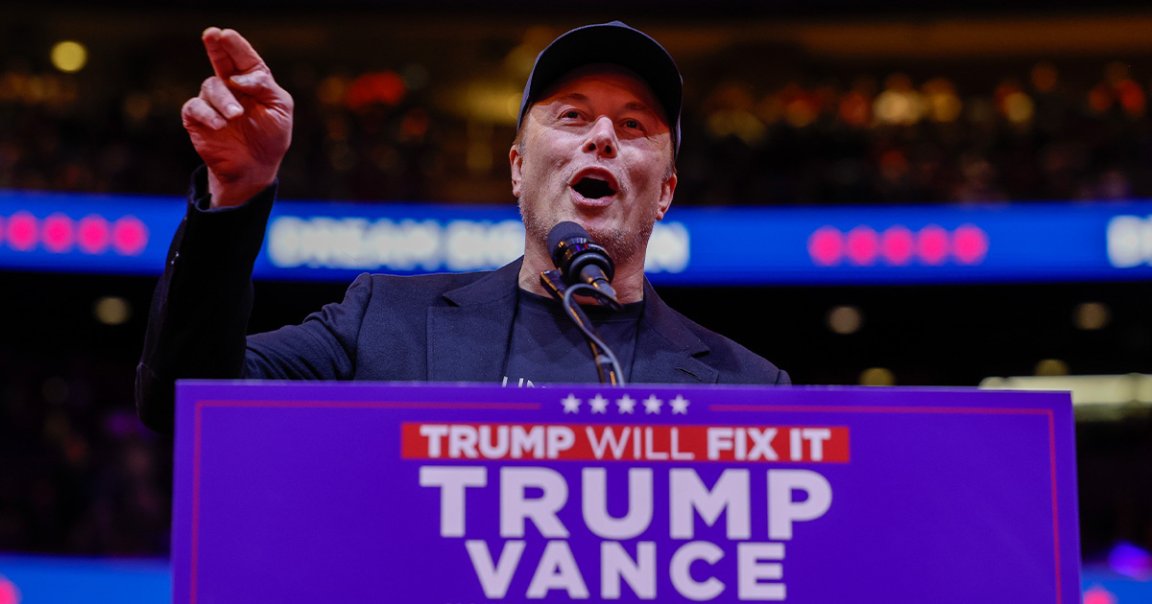
Cover Blown
Elon Musk has fervently railed against immigration for years. But it turns out that when he first got his start as an entrepreneur in the United States, the South African-born billionaire was staying and working there illegally, The Washington Post reports, with his associates even fearing that he could be kicked out of the country.
While his brother Kimbal has admitted to both of them working illegally, this is contrary to what Musk has claimed about his legal status in the past — and is brazenly hypocritical for someone who promotes anti-immigration rhetoric and conspiracy theories as he backs Republican candidate Donald Trump for president.
Musk arrived in Palo Alto, California in 1995 to attend a graduate degree program at Stanford University. But he never enrolled in any courses, instead working on his startup that would become Zip2, which sold for $300 million in 1999. It’s safe to say that Musk wouldn’t be the wealthy magnate that he is today without that golden ticket.
Yet while Musk plugged away at his first business, he was staying in the US illegally, according to legal experts who spoke to WaPo. Since he never attended school, he wasn’t permitted to remain in the country — let alone work there.
“If you do anything that helps to facilitate revenue creation, such as design code or try to make sales in furtherance of revenue creation, then you’re in trouble,” former Justice Department immigration litigator Leon Fresco told WaPo.
Rules For Thee
Musk’s dubious legal status was a major concern for investors who backed Zip2, which aimed to become a public company or merge with an existing one. A funding agreement from a VC firm that invested in the company stated that Musk and his brother Kimbal had 45 days to obtain legal work status, WaPo found.
“Their immigration status was not what it should be for them to be legally employed running a company in the US,” Derek Proudian, a then Zip2 board member who later became CEO, told WaPo. “We don’t want our founder being deported.”
According to former associates and shareholders, Musk said he was in the country on a student visa — which doesn’t permit working. Since he never enrolled at Stanford, he couldn’t stay in the US on that visa, either.
Though Musk denies this today and claims he had a “student-work visa,” he seemed to admit to his questionable immigration status in a 2005 email to Tesla co-founders, explaining his decision to apply to Stanford.
“Actually, I didn’t really care much for the degree, but I had no money for a lab and no legal right to stay in the country, so that seemed like a good way to solve both issues,” Musk wrote in the email, revealed in a California defamation lawsuit, per WaPo.
That in itself isn’t scandalous: working or staying in the country outside the limits of a student visa is a common and often necessary way for foreign students to temporarily support themselves. But it’s remarkably two-faced for Musk to smear immigrants and demand harsher border policies, when he benefited from a more relaxed immigration system.
More on Elon Musk: Head of NASA Not Happy That Elon Musk Has Been Secretly Taking Orders From Putin